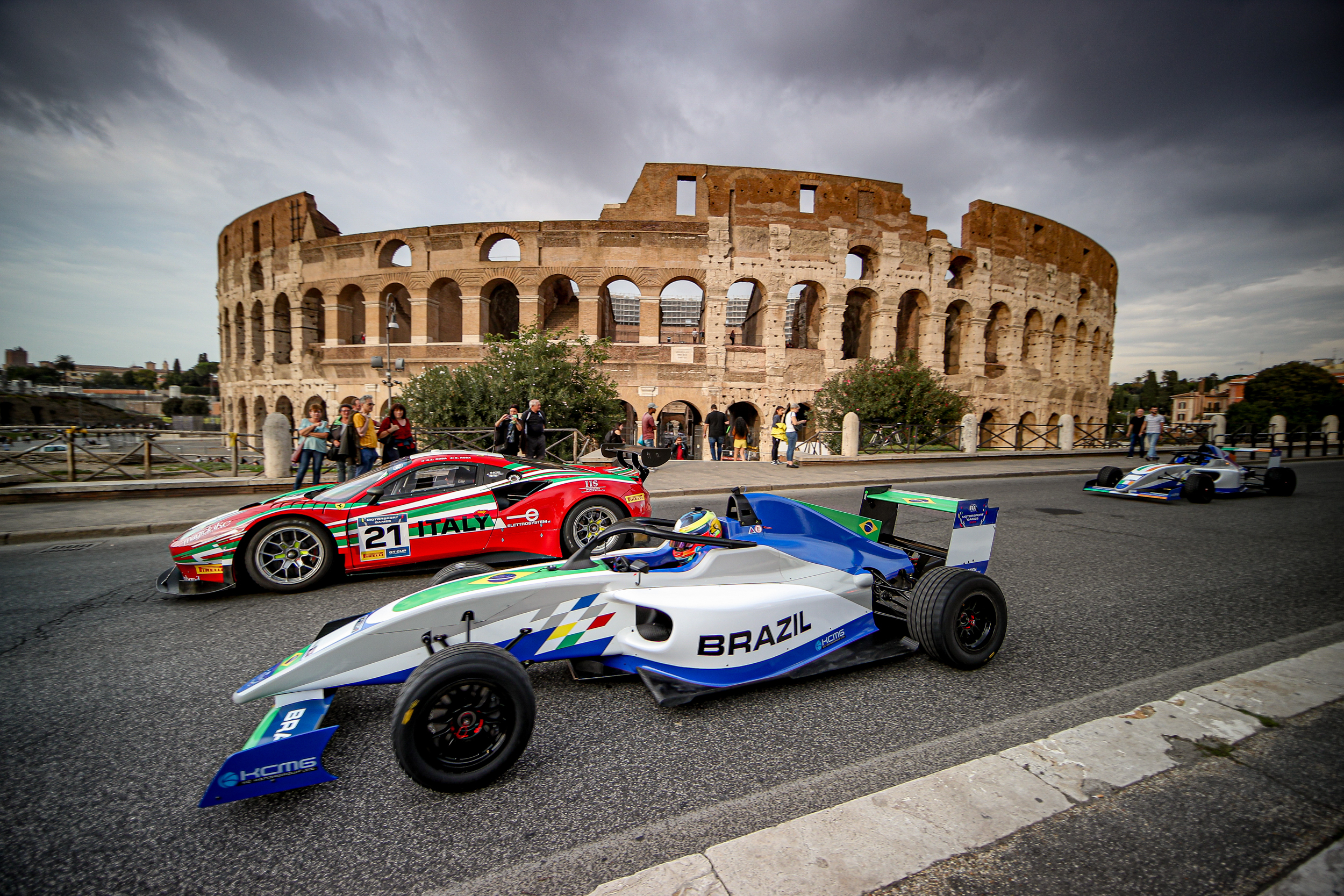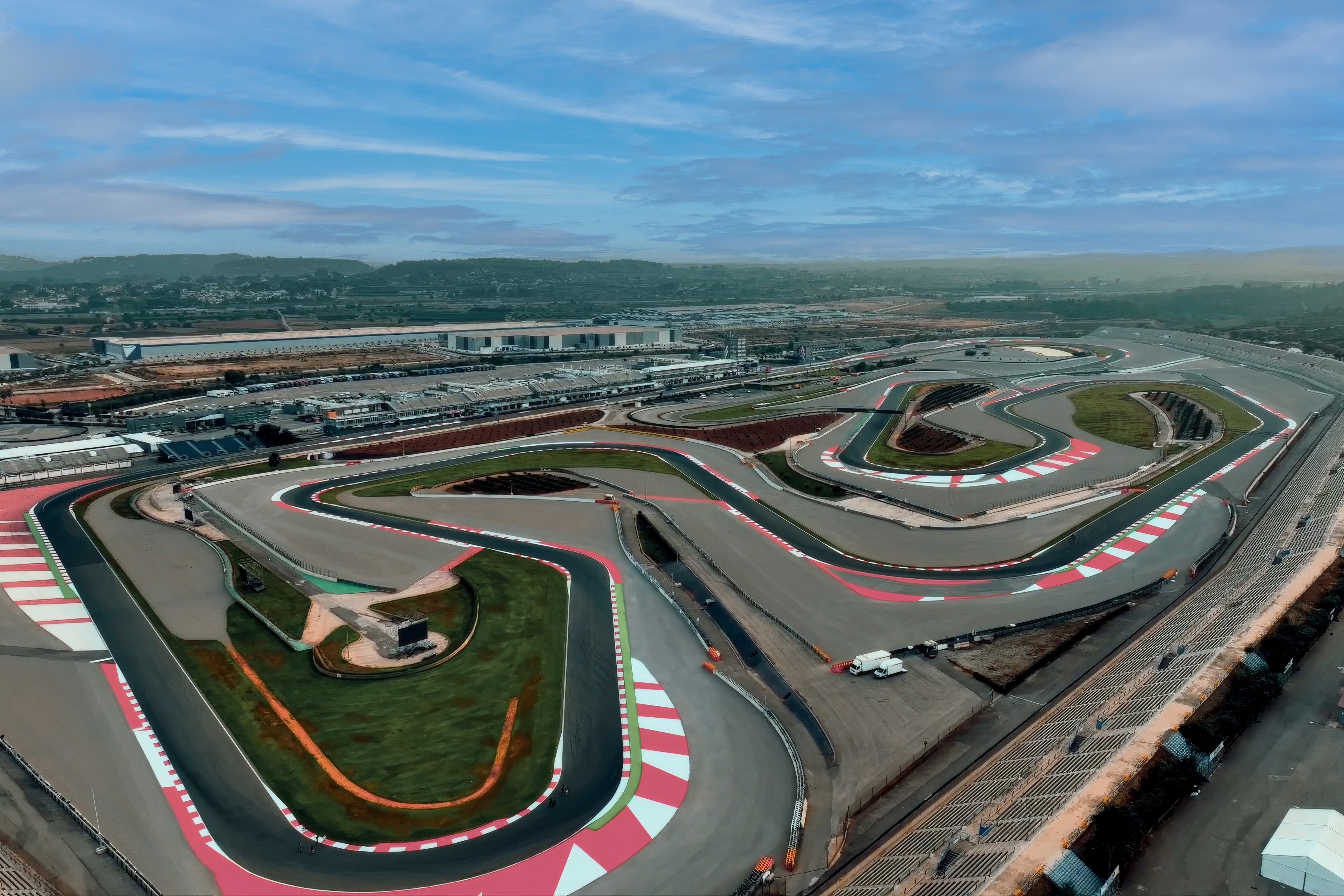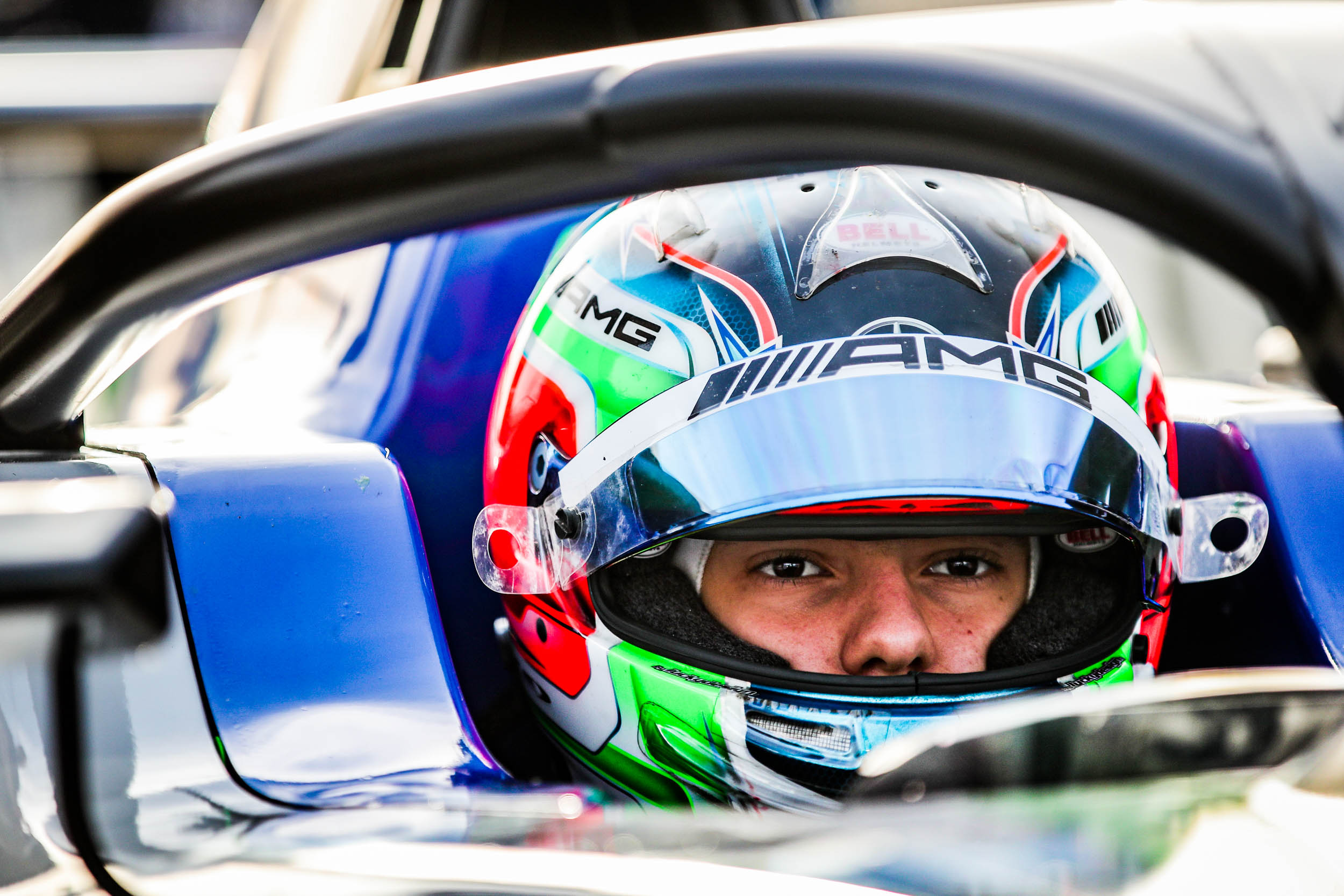VALENCIA, SPAIN (Friday, September 13, 2024) – From its earliest days, motorsport has brought together drivers from around the world to test themselves against the very best. It is proudly global, with teams often featuring a wide variety of nationalities working together towards a common goal.
At the same time, competitors have always desired to represent their homeland. During the first half of the 20th century, many cars competed in national colours, while drivers past and present have chosen helmet designs that reflect their country's flag.
Nothing else in racing encapsulates this spirit quite like the FIA Motorsport Games. Preparations are currently underway for the third edition, which runs from 23 to 27 October in the bustling Spanish port city of Valencia. The multidisciplinary event has quickly grown into a true race of nations – and it's only getting bigger.
The idea is simple: athletes compete for gold, silver, and bronze medals in the colours of their home flag. More than 80 FIA National Sporting Authorities (ASN) are expected to attend this year's edition to contest 28 categories.
Diversity really is the name of the games: alongside well-known competitions such as GT, Rally, and Karting, there is a strong emphasis on grassroots activities like Cross Car, Auto Slalom, and Esports.
The competition’s origins are in 2018, when the FIA GT Nations Cup was staged at the Bahrain International Circuit. The one-off event attracted 18 two-driver teams, each representing a different ASN, with hopefuls traveling from Asia, Australasia, Europe, North America, and South America. Team Turkey captured the gold medal and, in doing so, wrote a little piece of history.

In 2019, the FIA Motorsport Games was officially presented to the world. Rather than just a single race, six categories would compete at the Vallelunga circuit, with Rome acting as the host city. Along with the returning GT, two more circuit categories were added in Touring Car and Formula 4. Young hopefuls could contest Karting Slalom, which was open to mixed female-male crews, while Drifting and Esports opened the games up to a whole new set of competitors.
Like the FIA GT Nations Cup, it proved to be a huge success. The host city added a fresh sense of occasion thanks to a spectacular opening ceremony that took place in Circus Maximus and a parade that went past some of Rome’s most famous landmarks including the Colosseum.
The sight of drivers in their national colours celebrating medals helped to establish the event's unique appeal. The race of nations had been born.
Marseille acted as host for the second edition, with the opening ceremony staged at the Museum of European and Mediterranean Civilisations in the city's Vieux-Port district. The competitive action centred on Circuit Paul Ricard, Autocross Veynois and the surrounding region, while the programme expanded significantly to encompass 16 disciplines.
The six that ran in 2019 were joined by new additions, such as Rally, Cross Car, and Auto Slalom, bringing a total of 463 athletes to the south of France. No fewer than 72 ASNs participated, 29 of them new to the FIA Motorsport Games, setting a record for the number of nations contesting a single motorsport event.

Two years later, the third edition is very much on the horizon. Valencia will host, with the competition centered around Circuit Ricardo Tormo and its surrounding region.
This time, 28 categories will be on the programme, including newcomers such as Truck Racing, Ferrari Challenge Trofeo Pirelli Single Make GT, Karting and Cross Car mini, Rally All-Stars and gravel competition on gravel plus Formula 4 Esports.
More than 80 ASNs are expected this time, continuing the tradition of bringing new names to the forefront. Take the Bahamas: despite having no permanent kart circuit, the country's ASN staged a series of competitions using temporary courses to determine competitors for two Karting entries at the 2022 event.
The same spirit can be seen in grassroots and accessible disciplines, particularly Karting Slalom and Auto Slalom, which open the games up to an entirely new set of competitors.
Indeed, the former requires only a National Karting licence, while the latter brings in non-motorsport licence holders, with participants just needing a driving licence from their home nation.
This has helped to broaden the racing community. The FIA Motorsport Games has already attracted the best GT and Touring Car drivers in the world, while the 2024 edition will also be open to the top FIA World Rally Championship competitors for the first time.
As such, professional drivers stand shoulder to shoulder with compatriots for whom the sport is a labour of love.

It has also placed an important emphasis on young competitors. This is especially true in categories such as Karting Sprint Junior, Karting Mini, Cross Car Mini and Karting Slalom.
Indeed, there is already a growing list of drivers who have competed in the FIA Motorsport Games and gone on to enjoy success in the higher levels of the sport.
From winning Formula 4 at the 2022 edition, Kimi Antonelli now stands on the cusp of joining the Formula 1 grid. Doriane Pin made her FIA Motorsports Games debut in Karting Slalom at the 2022 edition and is now enjoying success in sports cars and single-seaters. And Nicklas Nielsen, winner of this year's 24 Hours of Le Mans with Ferrari, earned a bronze medal for Denmark at the 2018 FIA GT Nations Cup.
With its focus on global participation, the FIA Motorsport Games is able to bring the wide world of racing together in an unprecedented manner. Expect more incredible stories to be told when the games begin later this year in Spain.
Entries for the 2024 Games continue to pour in, and the dedicated FIA registration platform will remain open until September 23, 2024.
DRIVERS CLICK HERE
TEAMS CLICK HERE
Competitors wishing to represent their country are encouraged to contact their respective National Sporting Authorities, a complete list of which can be found by CLICKING HERE.

